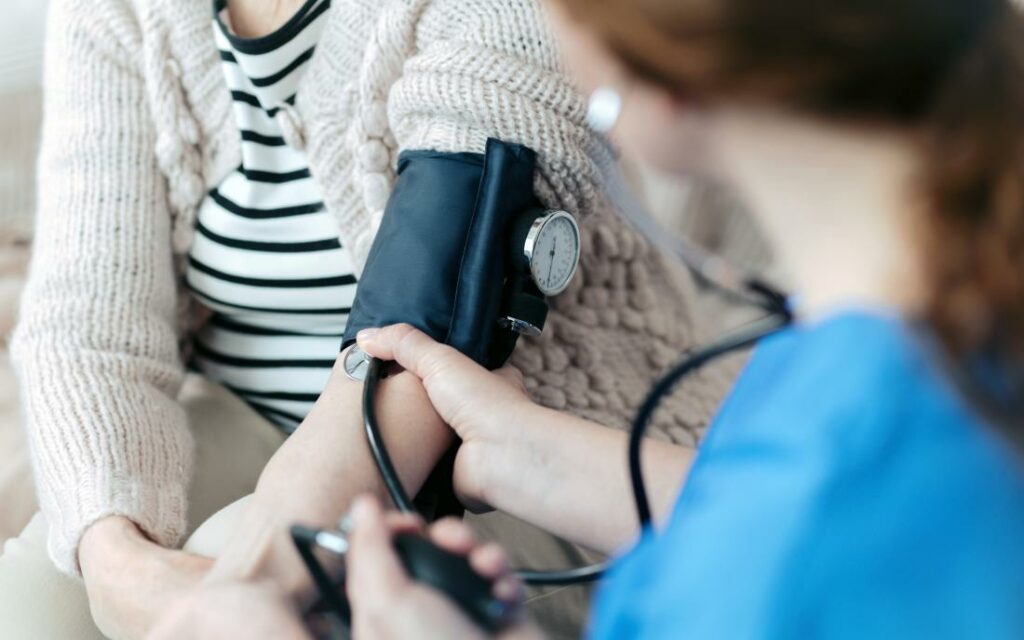By Sola Ogundipe
High blood pressure, also known as the “silent killer,” is among the top contributors to heart attack, stroke, and kidney failure across the globe. Still, physicians affirm that it need not be a life sentence nor require a lifetime on medication.
Evidence-based simple changes to lifestyle can decrease and even reverse elevated blood pressure naturally, says Professor Rasha Al-Lamee, consultant cardiologist and professor at Imperial College London.
“Reducing salt intake is what we recommend to all who come to see us with elevated blood pressure, it’s the single biggest change most can make,” Al-Lamee says.
Most adults consume around 8–9 grams of salt a day, a great deal more than the 6 grams (a teaspoon) they should be eating. Salt hidden in processed foods, sauces, soups, snacks, and restaurant meals is the culprit.
More meals at home are what Al-Lamee suggests, so that you can call the shots on how much salt goes into the meal. “Processed takeaways have a lot of salt in them. If you cook, you have a choice,” she advises.
Reducing salt lowers blood pressure within weeks. Sodium causes the body to retain more water, expanding blood volume and pressure on the walls of arteries. To fight this, experts recommend eating more foods rich in potassium such as bananas, avocados, green leaves, lentils, and yogurt that balance sodium levels.
Adults need around 3,500 mg of potassium daily, though some experts suggest up to 5,000 mg for controlling high blood pressure. Beyond this level, however, it is unsafe, especially in patients with kidney disease, says Al-Lamee.
Apart from diet, a healthy weight is essential. Losing 5–10 percent body weight can actually reduce blood pressure. “Waist circumference is the most important. In men, it should be less than 94 cm, and less than 80 cm in women.”
There are some strong weapons. “Getting your heart rate up for 20 minutes, three times a week, is really good,” she adds. Aerobic and strength training including brisk walking, cycling, swimming, or even climbing stairs strengthens the heart and causes blood vessels to function more efficiently.
At least 150 minutes of moderate physical activity a week is recommended, or even three 10-minute walks a day can reduce blood pressure by as much as 8 mmHg. Cigarette smoking and alcohol consumption also play a critical role.
“Drink moderately, it can raise blood pressure in the short term and long term,” Al-Lamee says. Studies show one glass of wine per day can make a difference. Experts recommend limiting booze to or under 14 units per week and taking it over several days.
Smoking, however, damages the lining of arteries and significantly increases the risk of cardiovascular disease. “Quitting smoking has positive effects on heart health very rapidly,” she emphasises.
Mediterranean-style diet rich in fruits, vegetables, wholegrains, beans, nuts, fish, and olive oil lowers blood pressure and heart disease risk. “It’s a matter of choosing unprocessed food, healthy fats, and lean protein,” Al-Lamee says. A simple substitution of butter with olive or rapeseed oil can decrease systolic blood pressure by 8–14 mmHg over the long term.
Sleep and stress management are also equally crucial. Stress hormones raise blood pressure, while poor sleep (under six hours at night) can exacerbate high blood pressure. Mindfulness, yoga, relaxation breathing, and taking breaks outside are recommended by Al-Lamee to calm the body down. “Get seven or eight hours of good-quality sleep,” she recommends.
Because high blood pressure is not usually going to cause symptoms, most people are unaware that they have it. Home or practice blood pressure checks on a regular basis are essential. Home readings of below 135/85 mmHg are fine. Although medication may sometimes be required, lifestyle changes may reduce the dose of medication or at least reduce the quantity of drug needed.
“If your blood pressure is only slightly too high, start with lifestyle changes,” says Al-Lamee. “I have patients who, after they’ve lost weight or dieted, need less medication than they did before.”
You don’t always need to pop pills to master your blood pressure but you do need persistence. Small, daily choices, less salt, more exercise, better sleep can make all the difference between a lifetime of drug-taking and lifelong cardiac wellness.
The post You can stop high blood pressure without medication – Expert appeared first on Vanguard News.

